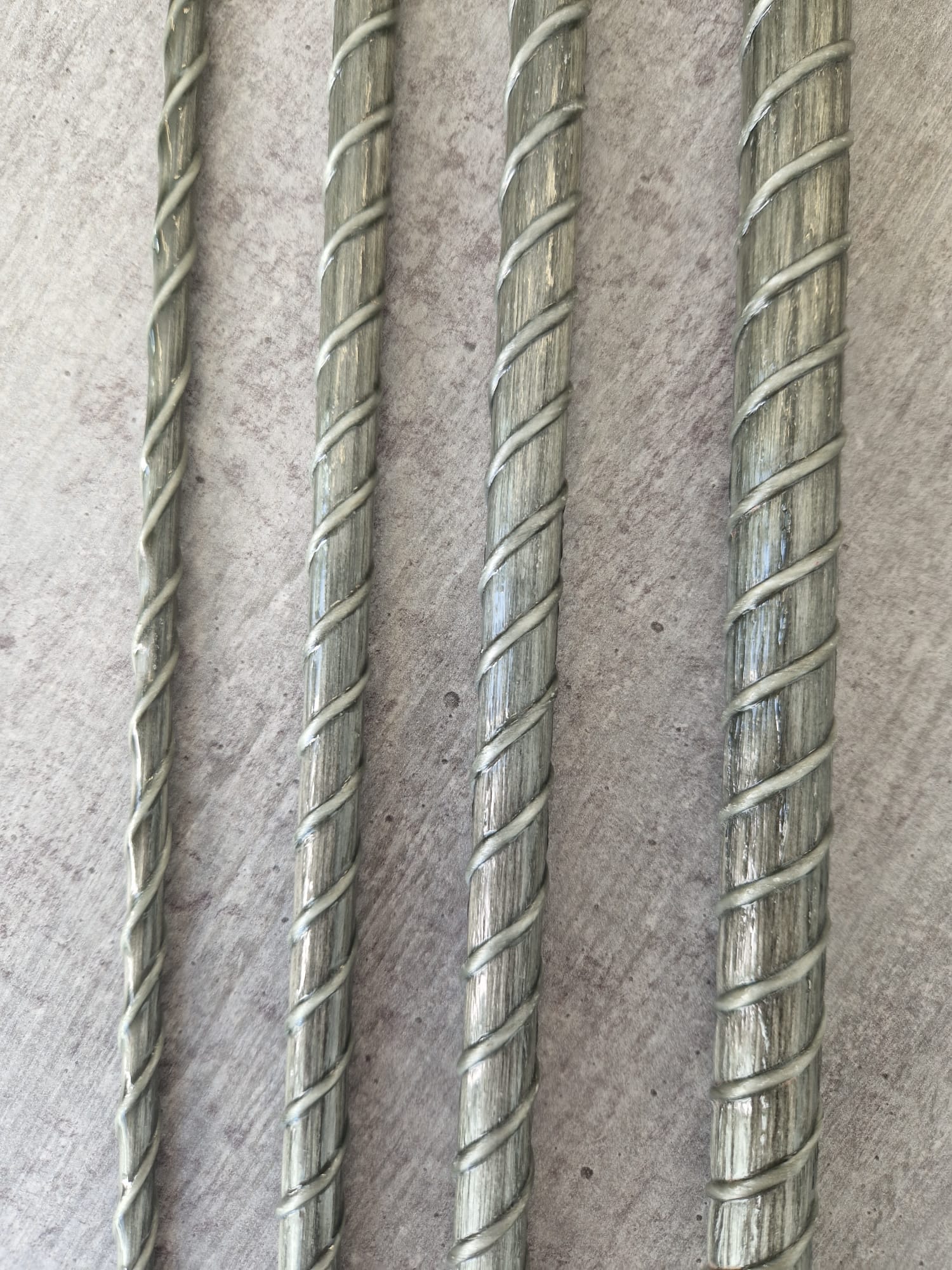Home > Products
Fiber Glass Composite
reinforcement
Strength in Every Structure
Product: GFRP reinforcement
We are the first company in the European Union to obtain certification for our GFRP reinforcement, which can be used to reinforce both load-bearing and non-load-bearing elements in monolithic and precast concrete structures.
Company’s products, presented by US subsidiary Froot won Elemental impact competition
The main advantages of glass composite reinforcement in comparison with steel are:
- Low Cost
- Three Times Higher Tensile Strength
- Eight Times Less Weight
- overwhelming corrosion resistance
- 100% adhesion to concrete
- low thermal conductivity
- radio transparency
- dielectric material
Strength in Every Structure
Comparison with analogues

| Characteristics | Fiberglass reinforcement | Metal reinforcement AIII (А400С) |
|---|---|---|
| Tensile stress, MPа | 1200 | 360 |
| Tensile modulus, MPа | Not less than 52000 | 200000 |
| Gravity, t/m | 2.1 | 7.8 |
| Thermal conductivity coefficient Bt/m2*°С | 0.59 | 53 |
| Thermal conductivity | Non conductive | Conductive |
| Electric conductivity | Dielectric | Electric conductivity |
| Profile diameter,mm | 4 – 36mm | 6 – 80mm |
| Profile length | 4- 10 mm diameter – in hanks to 150m, 12- 36 mm diameter –of any length to 12m | Rod length 6-12 m |
| Durability | Expected durability – 80 years | According to building regulation |
| Economics and logistics | When full- strength replacing 1kg of fiberglass reinforcement replaces 7-9 kg of steel reinforcement on average. |
Strength Built for Sea and Steel
Advantages of Our Composites
Our advanced composite materials combine marine-grade durability with the reinforcing power of iron rebar. They resist saltwater corrosion, reduce maintenance costs, and deliver long-lasting structural strength
Durability
Thanks to exceptional corrosion resistance and stable physical properties, GFRP rebar delivers building lifespans of 80+ years.
Light Weight
Composite reinforcement is up to nine times lighter than steel, cutting transportation and setup costs by as much as 80 percent.
Transportation Economy
Its lightweight, compact form means one truck carries the same GFRP rebar as nine trucks of steel, dramatically reducing shipping expenses.
Wide Range of Sizes
GFRP rebar can be produced in custom lengths and diameters, bundled for transport and straightened easily on site.
Easy Splicing
Unlimited rebar lengths remove the need for welding or splicing, lowering installation labor and associated costs.
Energy Efficiency (EE)
The low thermal conductivity of GFRP rebar helps reduce heat loss, lowering building heating and cooling expenses over time.
Radio Transparency & Dielectric
Fully non-conductive, GFRP rebar has no effect on electromagnetic fields or radio signals including Wi-Fi and mobile networks
Perfect Concrete Bond
GFRP rebar bonds tightly with concrete under tension and temperature changes, extending the structure’s life.
Simplified installation
Lightweight bars require minimal labor and tools, allowing installation costs to drop by up to 80 percent.
Temperature Resistance
GFRP rebar maintains full strength in extreme conditions from –70 °C to +200 °C, ensuring reliability in any climate.
High Tensile Strength
With tensile strength up to three times that of steel, GFRP allows smaller-diameter bars to replace traditional reinforcement.
Low Thermal Conductivity
Non-conductive composite mesh prevents cold bridges and improves thermal efficiency in any climate.
Quick Support & Response
Get in Touch Today
Need product details or a custom quote? Our team is ready to connect you with the right specialist.
